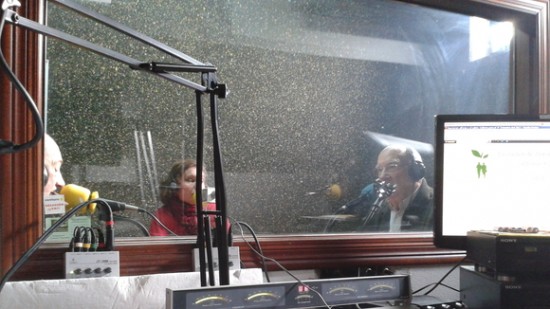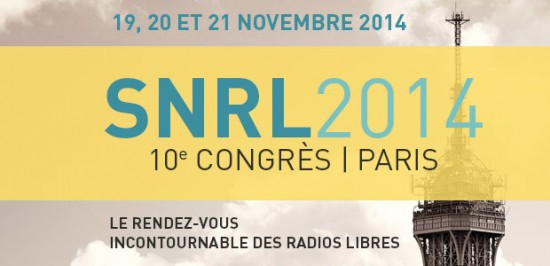Category: News
13 February is World Radio Day — a day to celebrate radio as a medium; to improve international cooperation between broadcasters; and to encourage major networks and community radio alike to promote access to information, and free, independent and pluralistic media.
UNESCO prepares to celebrate the fourth edition of World Radio Day, to be held on February 13, 2015. The theme for this fourth edition is “Youth and Radio”. It represents an important opportunity to evaluate the contribution of young people in the radio sector with the goal of increasing their participation along three levels:
- Youth-targeted programming.
- Programmes including young people at the production level.
- Finally and most importantly, programming devised and produced by young people.
The organizers have proposed some subthemes that are designed to offer a wide array of opportunities for discussion and to lend themselves to interesting and informative programming:
- The elimination of stereotypes and prejudice in the portrayal of young people in the media.
- Improving the security of young journalists, especially freelancers and fixers in conflict and disaster zones.
- The impact of young people on community radio (education, acculturation, coverage of conflicts not being covered by the wider media, emergency and humanitarian crises, etc).
- The link between the accessibility of information through radio amongst young people and the sustainable development of communities.
You can also consult a list of fifteen ideas for celebrating World Radio Day 2015 to act as a starting point and give you some inspiration about the different ways you can be a part of the celebration.
From AMARC Europe we invite you to send us (before December 30, 2014) any information regarding the events you are organizing for World Radio Day 2015, as well as any examples you may have of engaging radio content produced by youth, for youth. You can send the information to miriam.meda@localhost.
UNESCO is also offering young producers the opportunity to come (at their cost) and broadcast live from UNESCO Headquarters in Paris on February 13, 2015. Should any of the producers you have selected wish to take advantage of this opportunity, please send a proposal to Benoît Hervieu-Léger (b.hervieu-leger@unesco.org) before December 15.
Thank you in advance for your participation!
Category: News

Radio Nava (Asturias, Spain) has started a campaign on the webpage Change.org to avoid the 30.000 Euros fine imposed by the Spanish Ministry of Industry. The radio station has been charged for using an unauthorized frequency (only 3 community and free radios in Spain have legal licenses to broadcast). Besides the legal actions that this community radio is preparing, the Asturian radio station is asking for support and signatures which will be delivered to the Spanish Minister of Industry, José Manuel Soria.
Radio Nava has been broadcasting since 1997 and one of its strenghts is its use of communication tools to support drug users’ rehabilitation and drug prevention in the town where it is located. Many families and citizens would be negatively affected if this community radio station ceases to broadcast. With this petition the association will also try to force the Spanish Government to develop more specific regulation for community radio and in the hope that licenses will be issued for community radio projects across the country.
Please sign the campaign here .
Please write immediately in Spanish or your own language to the Spanish Ministry of Industry:
- Urging it to stop immediately any threats to Radio Nava and to cancel the procedure relating to the closure and fine.
- Calling for all necessary steps to be taken to ensure fair and sustainable development of community media in Spain, through a proper specific regulation for the Third Media Sector, as demanded by the national law of 2010.
Please send appeals before 30th November 2014 to:
Minister D. José Manuel Soria: https://www.minetur.gob.
Twitter: https://twitter.com/
And copies to:
Spanish Federation of Community Media (ReMC):
coordinacion@
Category: News

Radio Nava (Asturias, Spain) has started a campaign on the webpage Change.org to avoid the 30.000 Euros fine imposed by the Spanish Ministry of Industry. The radio station has been charged for using an unauthorized frequency (only 3 community and free radios in Spain have legal licenses to broadcast). Besides the legal actions that this community radio is preparing, the Asturian radio station is asking for support and signatures which will be delivered to the Spanish Minister of Industry, José Manuel Soria.
Radio Nava has been broadcasting since 1997 and one of its strenghts is its use of communication tools to support drug users’ rehabilitation and drug prevention in the town where it is located. Many families and citizens would be negatively affected if this community radio station ceases to broadcast. With this petition the association will also try to force the Spanish Government to develop more specific regulation for community radio and in the hope that licenses will be issued for community radio projects across the country.
Category: News
 1984-2014: 30 years of freedom of information.
1984-2014: 30 years of freedom of information.
2004-2014: 10 years of Syndicat.
Le Syndicat National des Radios Libres celebrates its 10th Anniversary in Paris between 19th, 20th and 21st of November. This Conference is celebrated among the challenges of media pluralism, freedom of expression, cultural diversity and social proximity communication in French society. Moreover, it tries to channel the battles about digital convergence and for the access to the air waves.
In this context, in the SNRL there are 630 associative radio stations, 2100 employees and tens of thousands of volunteers working to have their place as part of the current french audiovisual landscape.
Emmanuel Boutterin, President of the SNRL, reinforces the idea of working together: In the field of broadcasting and social issues, we have also learned to work together and build alliances with the public service and commercial radio sector. It must be understood that all broadcast TV, radio and film are at the stage of building new power at national and global level. We cannot loose what our predecessors have managed to build with courage and conviction. They have shown the way, be worthy of their thinking and their achievements. The historic slogan SNRL takes on its meaning: “Together we are stronger!”
The inscription for this event can be found here, and here is the full program of the Conference.
Category: News
 A Coruña, 14 November 2014. The Community Media Network (ReMC) has decided to file an administrative appeal against the royal decree of the Government in the Digital Terrestrial Television (DTT). The Government has excluded community television despite being bound by the General Law on Audiovisual Communication 2010, which plans for television frequencies to be reserved and provided to nonprofit media in all districts of the state.
A Coruña, 14 November 2014. The Community Media Network (ReMC) has decided to file an administrative appeal against the royal decree of the Government in the Digital Terrestrial Television (DTT). The Government has excluded community television despite being bound by the General Law on Audiovisual Communication 2010, which plans for television frequencies to be reserved and provided to nonprofit media in all districts of the state.
“It’s amazing and a huge fumble that the Government has excluded community television communication services in the Royal Decree 805/2014,” says the general coordinator of the ReMC, Maria Navarro. “We have agreed at a special meeting to take all necessary steps to correct this illegal executive measure and to establish the necessary partnerships to do so.”
The administrative appeal shall be submitted before the end of this month and for this you will have one of the most prestigious law firms in the country in the audiovisual field. Additionally, crowdfunding campaign will be launched to finance the costs of this action and to be taken in the future.
Favourable Precedents
There are very favorable records to trust on the success of this administrative appeal. In 2013, the Community Media Network challenged and ensure the cancellation of the allocation of radio frequencies in the City of Melilla because the executive did not include community media.
Also, the Union of Community Radios of Madrid (URCM) and the Galician radio station Cuac FM have appealed the distributions of licenses in their autonomous communities. Over the past two years, the Ombudsman has repeatedly urged the Government of Spain to implement and develop the obligations towards Community radio and television under the General Law on Audiovisual Communication .
“Discrimination against community media has to stop immediately. There are 3 TVs associated to the ReMC that are being directly affected by this measure. But let’s draw and win this because it is another breach against the rights of citizens to receive and disseminate information through their own means, which is enshrined in Article 4 of the Audiovisual Law. And we must do it for all community broadcasters to come,”said Navarro.